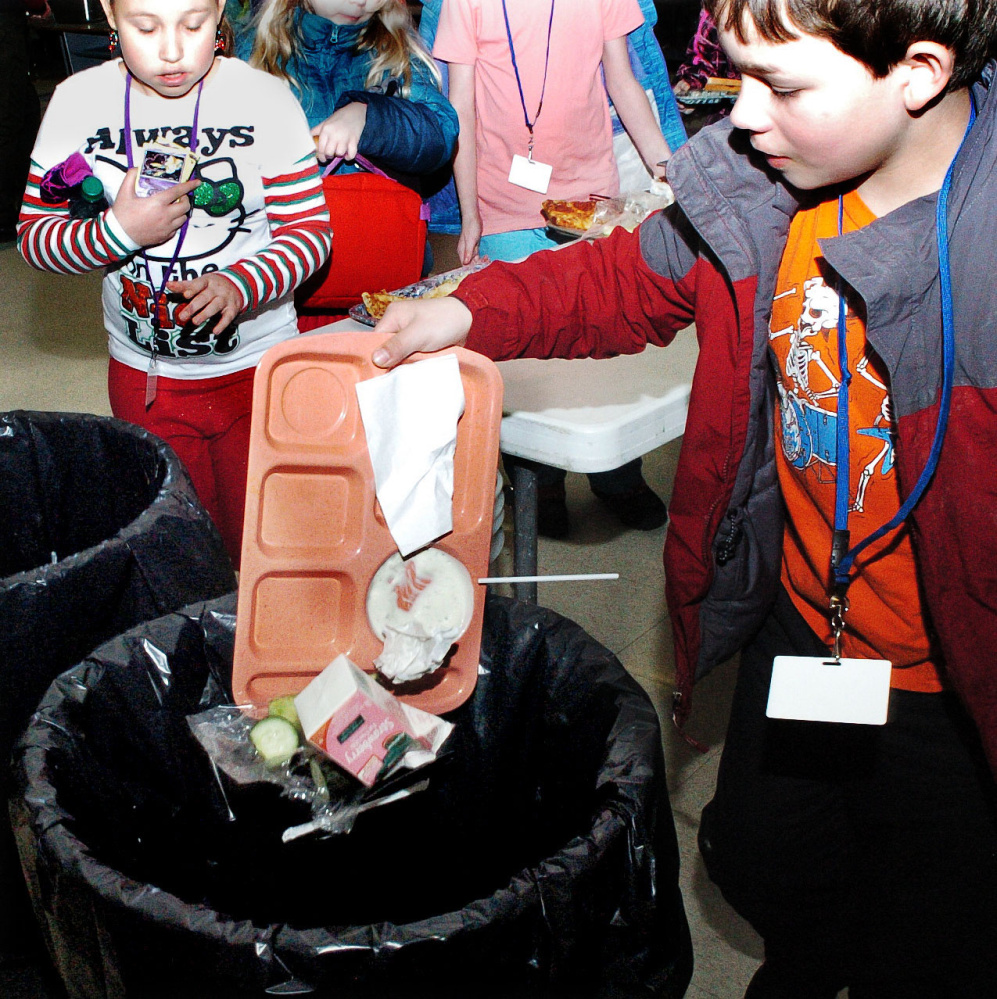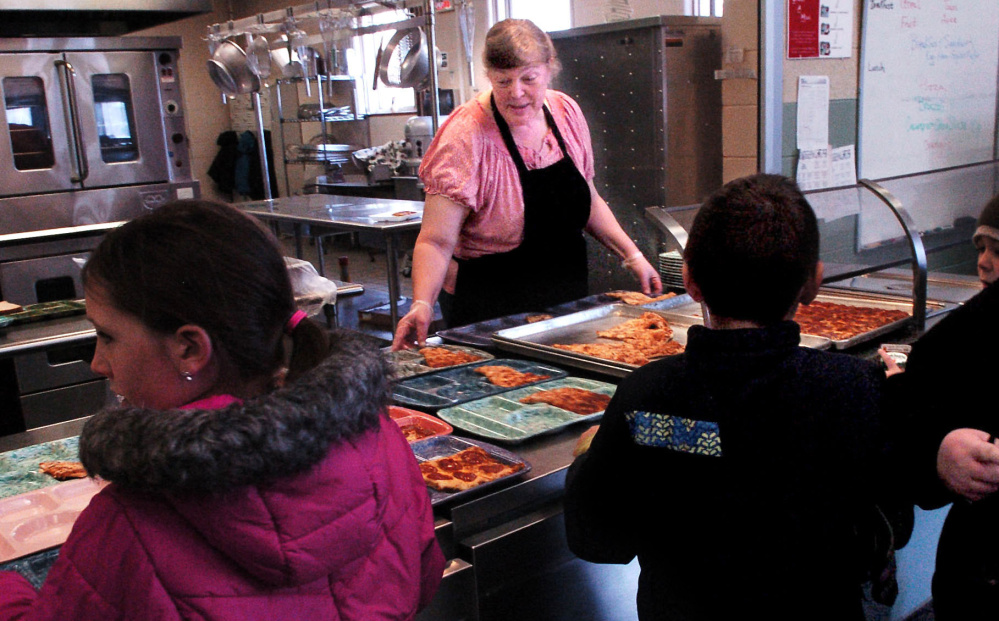WINSLOW — A committee tasked with finding innovative ways to handle the town’s waste is piloting a recycling program that could increase diversion rates and save money.
The program would recycle food waste, bringing it to the Agri-Cycle Energy processing plant in Exeter. The waste would be combined with cow waste and turned into methane gas, which could then be used to make electricity.
“You’re turning something into another value,” said Ken Fletcher, a member of the municipal solid waste committee and a town councilor.
The food waste recycling program is being piloted at Winslow Elementary School and starts on Jan. 3. The school is keeping track of its waste now to get an idea of the tonnage it may send to Exeter.
While the committee doesn’t know the tonnage the program could save now, it expects the program will help the school save a significant amount, which translates into fewer tipping fees. A tipping fee is the amount per ton of trash that a waste processing facility charges customers to offset costs.
Winslow now sends its 2,800 tons of trash to the Penobscot Energy Recovery Corporation, or PERC, which imposes a $63 tipping fee after a rebate. Agri-Cycle Energy will charge $25 each time it picks up the food-waste container, which is scheduled to be twice per week.
In 2018, when Winslow leaves the Municipal Review Committee, an organization that represents the waste interests of many Maine towns, because the contract with PERC expires, the town will send its trash to Crossroads Landfill in Norridgewock. The cost to get the trash there will be “significantly less,” Fletcher said, and the tipping fee will be $65 per ton.
At the same time, the town is hoping to increase its diversion rate, or how much recyclable material gets diverted out of the trash. Fewer tons of trash means fewer tipping fees the town pays.
The struggle many towns face is collecting those recyclable materials, Fletcher said. According to him, the numbers from surrounding towns show that about 40 percent of trash is recyclable. However, even with single-sort recycling, the best a town will typically get is about 25 percent of the recyclables.
Winslow currently has a drop-off station at the Winslow Public Library for recyclables, and it only gets about 5 percent of the total, 140 tons, Fletcher said. The hope is to capture about 25 percent.
The committee is starting with the school program because that is an obvious producer of large amounts of food waste, and it allows the waste to be collected from one location. The pilot program will continue until the end of the school year, and the committee will then consider expanding it to other local schools. Fletcher said he expects it would take a year from January for the school food-waste program to become permanent if the pilot works out.
Collecting homeowner food waste poses more of a challenge, though, he said. There are some trash collection trucks that have three compartments — one for trash, one for recycling and one for food waste — but those would cost more than the typical one-compartment truck, which rings in around $450,000.
The committee may try a drop-off pilot program in 2017 instead for homeowners.
Either way, though, the town is due for a new trash collection truck, so the committee will be looking at how many compartments to get.
Fletcher said that a two-compartment truck along with a single-sort recycling program could help increase the likelihood of people recycling. While single-sort recyclables aren’t considered as high quality as sorted ones are, Fletcher said that “you just don’t get the quantity” otherwise.
“A lot of people will not sort it out,” he said. If people are required to sort items, the number of recyclables drops to 10 percent of the total, he said.
“It’s gotta be user-friendly. It’s gotta be cost-effective and sustainable,” Fletcher said. The committee also has to work on educating people, as most “don’t spend a lot of time thinking about their trash.”
The committee also conducted a survey during the Nov. 8 election that garnered mixed results. While the vast majority of people who took the survey, 855-77, said they would sort their trash in separate containers for curbside pickup, a majority, 528-486, said they would prefer the town maintain its current system of all trash in one container, even if taxes increased due to increased tipping fees. Most, 420-595, said they weren’t willing to separate organic trash at home and deliver it, as well.
Madeline St. Amour — 861-9239
mstamour@centralmaine.com
Twitter: @madelinestamour
Copy the Story LinkSend questions/comments to the editors.





Success. Please wait for the page to reload. If the page does not reload within 5 seconds, please refresh the page.
Enter your email and password to access comments.
Hi, to comment on stories you must . This profile is in addition to your subscription and website login.
Already have a commenting profile? .
Invalid username/password.
Please check your email to confirm and complete your registration.
Only subscribers are eligible to post comments. Please subscribe or login first for digital access. Here’s why.
Use the form below to reset your password. When you've submitted your account email, we will send an email with a reset code.